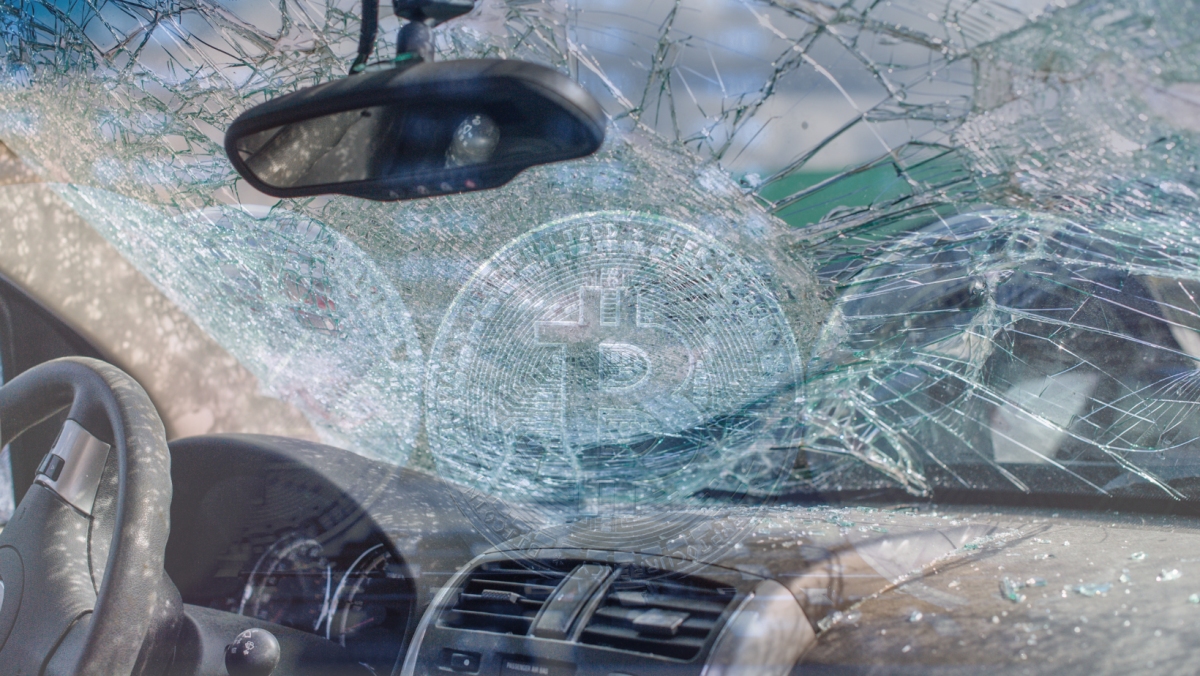
When there is a crash on the track, drive through the smoke!
There is a very small chance you’d know this is a quote from the 1990’s American sports action film, “Days of Thunder, which featured Tom Cruise in the driver’s seat. What does a Nascar racing movie have in common with what crypto is experiencing these days? More than you think.
Nascar racing cars are not that different from each other, but small details can make a huge difference when it comes to performance. The supporting teams are all experts in their own domains, but slightly better skills can deliver huge efficiency gains during quick pitstops where every nanosecond counts. And while drivers are arguably the stars of the show, it’s their leadership that really pulls the entire operation together to achieve fame and glory.
In crypto, all teams are doing laps in the same industry, playing by the same rules, with the goal to reach the finish line before anyone else. Many blockchains or applications are similar at a high level, but small modifications and tweaks create advantages in either scalability, decentralization or security. Developers work around the clock to make those tweaks and fix critical bugs to take market share from competing blockchains. And founders or co-founding teams are the ones that drive the organization with their eyes on the prize.
If you’ve ever watched a Nascar race, you’d know collisions happen all the time. And anyone who has been around the block in our industry knows projects that once seemed invincible can collapse suddenly and quite dramatically. After a crash, it’s important that we analyze what caused it and what we can do to prevent it from happening again — or at least figure out how we can reduce the damage.
There are two big crashes in Days of Thunder, with two very different outcomes. Approaching the crumpled and destroyed vehicles ahead on the track, the Team Head instructs Tom Cruise to “drive through the smoke.” The first time our hero does this, he ends up in the hospital. The second time around, it leads him to victory.
Crypto has also had two big crashes this year, starting with the Terra-Luna collapse back in May and now the ongoing FTX debacle. During the first crash, everyone was unprepared, inexperienced, and fearful. Many companies had a near-death experience and some didn’t make it through the smoke. Those that survived either treasured the lessons learned and worked on improving their game at every level or they carried on with their same old routine, discounting the chances another black swan event would occur right after the other.
Then Celsius lost a tire. BlockFi couldn’t steer clear. Others piled up. And eventually, SBF’s car flipped over and covered the track in a thick cloud of smoke.
We’re all still driving through the smoke, and it’s getting dark with no end in sight. Who’s going to clear the smoke and come out unscathed? Which cars will come out with just a few dents? And which ones will crash and burn? We won’t know for sure until it’s over, but looking at the way some companies responded to the first Terra-Luna collapse, we can make an educated guess.
What might happen next
Centralized exchanges will have a hard time moving forward since they hardly made any material changes following the first crash. Most of them carried on as usual, lending out assets using poor risk management and controls. The few centralized lending platforms that are still around are going through tough times too because they didn’t re-risk sufficiently under the false assumption that a second black swan event wouldn’t follow so soon.
Stronger players include blockchain projects that manage their treasury wisely without chasing short-term returns, focusing on development and extending their runway. Independent custodians that prioritize strengthening their core infrastructure to provide a safe harbor for all other players have a good chance as well to come out unscathed.
Amidst all the uncertainty, one thing is clear: The combination of strong blockchains and custodians will be leading the race. Where these two overlap is staking. True, on-chain staking supported by the security that only a fully licensed and independent custodian can provide will help the best projects and their dedicated communities to navigate the difficult times ahead and potentially even thrive once the smoke clears.
Bitcoin and its proof-of-work model will always be the gold standard in this industry, but proof-of-stake blockchains are likely the ones to thrive as they attract more interest due to native yield features, and as a fertile ground for rapidly expanding developer communities. The role of independent custodians is to provide safe access to parties that want to contribute to these blockchains through staking solutions in a way that guarantees all stakers retain full control over their own assets and private keys.
Full transparency of on-chain transactions is the only way forward from this point on. If any staking is done without providing the transaction ID of a successful on-chain delegation to a validator, then it is not true staking but should be considered as a lending solution. And if we as an industry are to learn from our past mistakes, opaque mechanisms that do not verifiably prove where and how your assets are deployed can turn ugly in a heartbeat.
The only way through the smoke is on-chain.
This news is republished from another source. You can check the original article here


